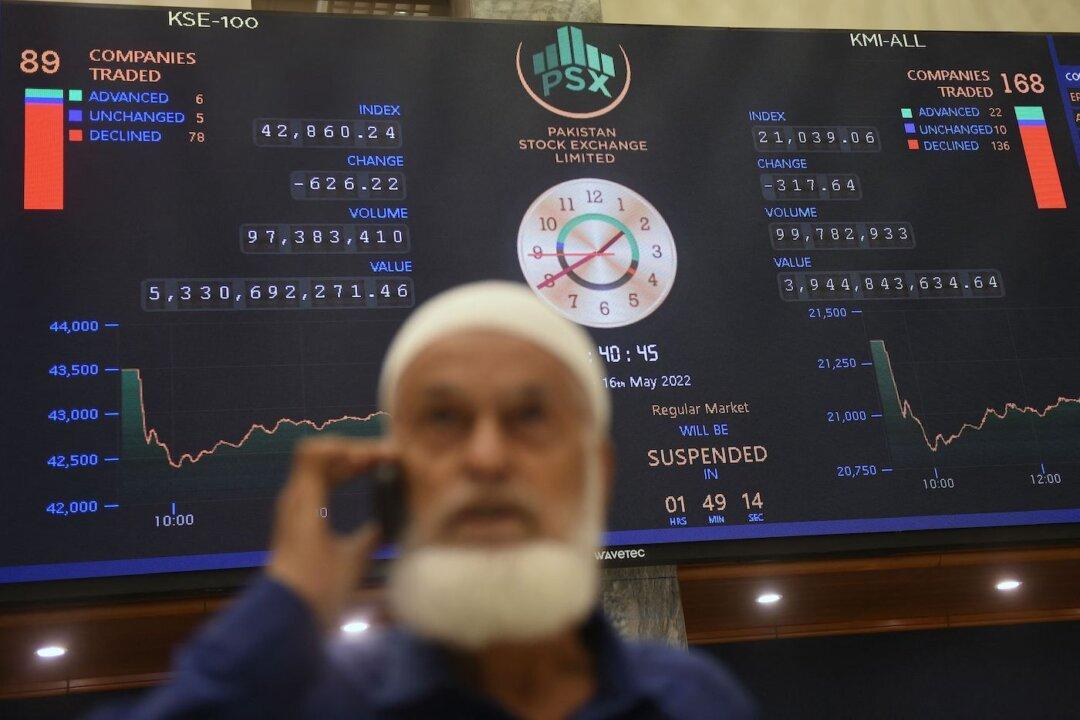Pakistan is at risk of economic default amid increased political uncertainty following the removal of Prime Minister Imran Khan last month.
Foreign reserves held by the State Bank of Pakistan fell by $190 million to $10.3 billion this month, sending the Pakistani rupee to an all-time low in the interbank market of 191.77 rupees per dollar, according to local reports.





